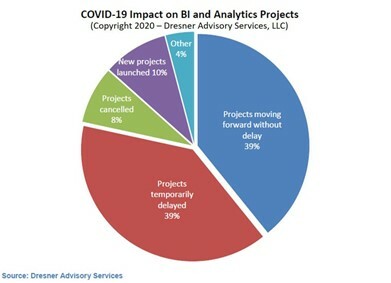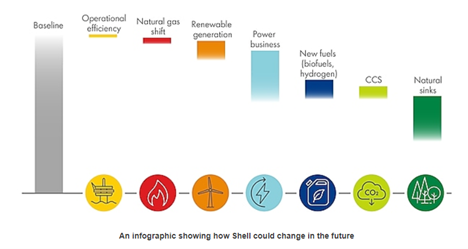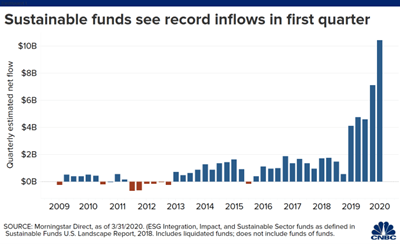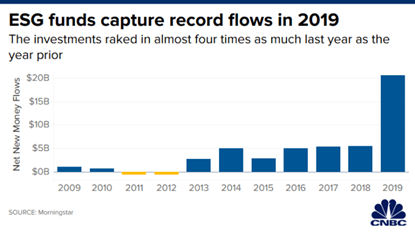Why Digital Transformation Can Take Sustainability To New Heights

Digital transformation and sustainability have evolved over the years, but even amid the ongoing COVID-19 pandemic, this presents an opportunity for companies to accelerate their adoption of digital technologies and keep sustainability initiatives at the top of their priority lists.
These two trends will converge within an organization from clean technologies to green production processes to transforming a company’s brand as a sustainable company. While attention to these is generally focused on them individually, less attention, however, is directed to understanding how these trends combine in reshaping how an organization can operate—profitably.
Digital Transformation: A Sustainable Fit
Sustainability can serve as a catalyst for many companies to integrate digital technology into all areas of their business. As the pressure for environmental responsibility mounts, digital technologies such as artificial intelligence (AI), predictive analytics, machine learning (ML) and the internet of things (IoT) can help organizations effectively achieve sustainability goals. Some examples include:
- AI aiding with disaster response, reducing air pollution, making renewable energy more affordable, and helping to make buildings more energy-efficient.
- Analytics and ML being applied to automate processes with environmental impact, predictive maintenance, and renewable energy forecasts for solar and wind power.
- Using IoT devices to help with gathering data to monitor, analyze production processes, and assist with assessing environmental impacts.
According to the latest study by Dresner Advisory Services, predictive analytics and business intelligence (BI) projects have seen a rapid increase in growth (49%) from large enterprises launching new analytics and BI projects or moving forward with projects that have already been planned.

Sustainability: More Than Just A Trend
In the energy industry, the perception of sustainability has shifted from a “nice to have” to one of a “must-have” approach over the years, as companies are seeing sustainability initiatives as a viable way for helping to create profit and open up new business opportunities.
Sustainability initiatives by various oil and gas companies over the years have included reducing their carbon footprint and increasing their use of digital technologies for cleaner energy solutions. For example, one of Royal Dutch Shell’s long-term goals is to increase the mix of products it sells by investing in clean energy technologies. In 2019, Shell acquired ERM Power, one of Australia’s largest commercial and industrial electricity retailers.

The entry into this sector brings new challenges for Shell. In this context, digital technology will assist Shell’s entry into this new business. By using smart meters, grid equipment, weather data, and GIS data to forecast energy consumption and having real-time data on consumer behavior, Shell will have data in predicting energy supply and demand.
As digital transformation and sustainability converge, this also results in an influence in the market conditions for investor behavior. Evidence continues to point to the fact that sustainable-related activities are material to the financial success of a company as investors care more about Environmental, Social, and Governance (ESG) performance than previously believed by executives.
Sustainability Investing In The Spotlight
The shift in “sustainability as a luxury” to “sustainability as a need” in investing has seen $10.5 billion of inflow in the first quarter of 2020 in the U.S. Analysts at Bank of America found that companies with below-medium ESG scores typically saw larger downward earnings per share (EPS) revisions in 2020.

Investors have also found that firms with better ESG records generally produce higher returns and are more likely to become high-quality stocks. Mutual funds and exchange-traded funds with a focus on sustainability accounted for $20.6 billion of total new assets in 2019, an increase of nearly four times the amount of $5.5 billion from 2018.

Sustainability: The ‘Next Normal’
As new digital technologies are improving sustainable innovations and financial reporting, it’s forcing companies across all industries to look inward and look towards the future. Eighty-six percent of companies in the S&P 500 Index have published sustainability reports in 2018, up from 20% in 2011.
With growing pressure from investors to disclose consistent, quantifiable, and reliable ESG metrics, companies are incorporating sustainability reporting standards that align with standardization organizations, such as the Global Reporting Initiative (GRI) framework, Sustainability Accounting Standards Board (SASB), and the Task Force on Climate-Related Financial Disclosures (TCFD), to name a few, into an organization’s digital transformation strategies.
Salesforce Sustainability Cloud is a trusted sustainability platform that greatly helps companies analyze, report, and track environmental data to determine where a company needs to reduce environmental impact and carbon emissions.
For companies that are on the fence deciding whether to pursue a digital transformation journey, it’s important that leadership has a clear vision to train its employees about the purpose of the transformation and the required technical skills to get there, as well as promote collaboration and transparency in the process.
At Opportune, we can help define and execute your digital transformation and sustainability goals, from implementation and/or management of ESG data management and financial reporting and disclosure assistance, to change management or technology selection.
Related Insights
Looking for expertise in the energy industry? We’ve got you covered.
Find out why the new landmark legislation should provide a much-needed boost for the development of carbon capture.


